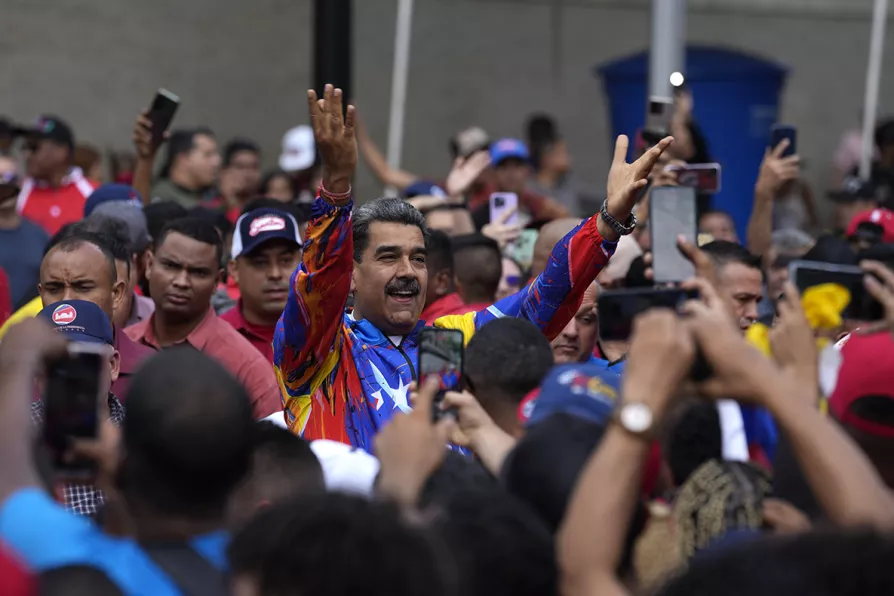
 Venezuelan President Nicolas Maduro greets young supporters marching against the U.S. sanctions imposed on Venezuela, in Caracas, Venezuela, May 17, 2024
Venezuelan President Nicolas Maduro greets young supporters marching against the U.S. sanctions imposed on Venezuela, in Caracas, Venezuela, May 17, 2024
THE start of the election campaign period in Venezuela was almost axiomatically followed by a mass unity mobilisation of Chavista forces, a messy crisis of leadership and candidacy for the right-wing opposition and the announcement by the US of the imposition of more sanctions against the country’s main revenue earner: the oil industry.
The Chavista movement is fielding incumbent President Nicolas Maduro, while the various opposition currents have, thus far, nearly 10 candidates), with the US (and therefore the EU bureaucracy) supporting extreme-right candidate Edmundo Gonzalez Urrutia.
The Chavista forces staged an impressive mobilisation for International Workers’ Day on May 1, in tumultuous and large rallies in Venezuela’s key cities. So far, rallies held by the extreme right in support of Gonzalez have been rather small and have not covered as much of the country’s geography as the Chavista demos.

International solidarity can ensure that Trump and his machine cannot prevail without a level of political and economic cost that he will not want to pay, argues CLAUDIA WEBBE

The global left must be unwavering in it is support for Venezuela as Washington increases its aggression, and clear-eyed about the West’s cynical motives for targeting it, says CLAUDIA WEBBE

US baseless accusations of drug trafficking and the outrageous putting of a bounty on a president of a sovereign country do not bode well, reports PABLO MERIGUET










